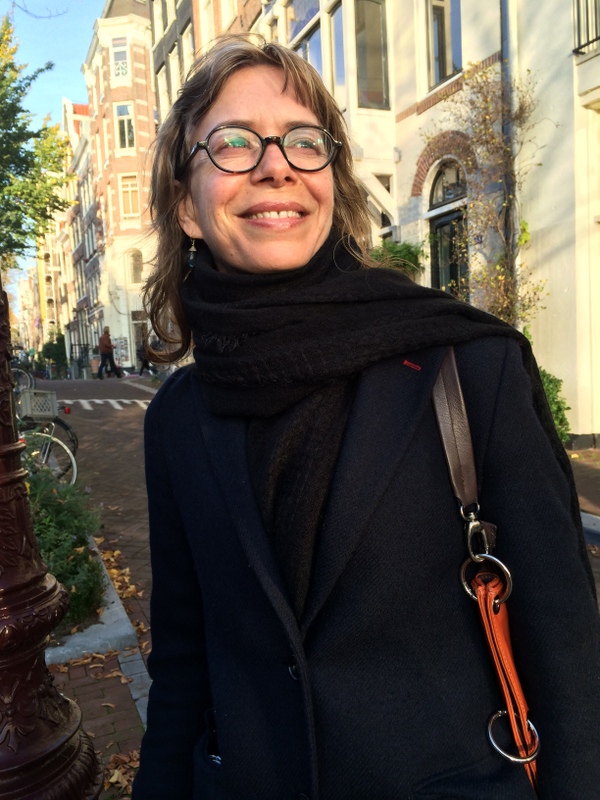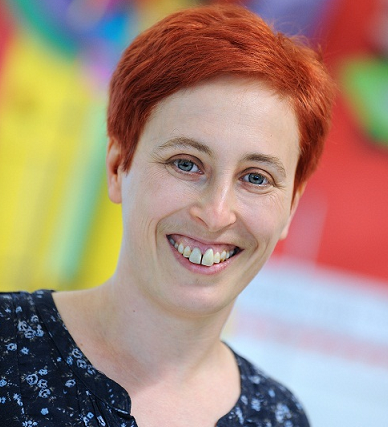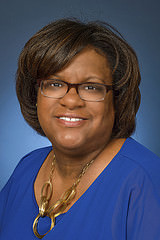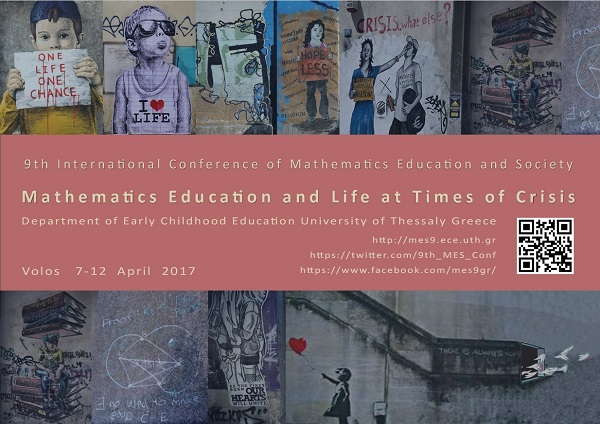Keynotes

Title: Mathematics and the body: The biopolitics of Number sense
The term number sense is used to describe various skills associated with numeracy. Neurocognitive research is redefining number sense in terms of the activation of “neuronal populations” as part of the turn towards biosocial research methodologies. Through these research practices, the human body is retrained to produce new kinds of value. In this presentation, I will explore questions that are urgent in the wake of the increasing reliance on brain research in education: How does this new research change what it means to know mathematics? How is value being extracted from the body through these tests of numerosity? And what kind of assumptions about number are at stake?
Bio:
Elizabeth de Freitas is a Professor in the Education and Social Research Institute, at Manchester Metropolitan University. Her research focuses on philosophical investigations of mathematics, science and technology, pursuing the implications and applications of this work in cultural studies of education. Her recent work focuses on mathematics and the body, examining gesture, sensation, and embodiment in various kinds of mathematical activity. She also writes extensively on social science research methodology, exploring alternative ways of developing experimental research methods that can address biosocial and biopolitical entanglements. She is associate editor of Educational Studies in Mathematics, and has published four books and over 50 chapters and articles on a range of educational topics.
 Heather Mendick, Freelance Academic, UK
Heather Mendick, Freelance Academic, UK
Title: Mathematical futures: discourses of mathematics in fictions of the post-2008 financial crisis
Jane Flax wrote: ‘I believe that four of the greatest tragedies of modern Europe – slavery, the oppression of women, Nazism and Stalinism – were potentiated by our collective wish that innocent and universal positions are possible and desirable’. Reading this during my doctoral studies, and coming to MES, were critical for thinking the implication of mathematics, the most innocent and universal of all disciplines, in terror and crisis. In this talk I will develop this thinking by focusing on the ongoing ‘crisis’ following the 2008 financial crash. Mathematical instruments were at the heart of this crash. Yet, what are the stories we tell about it and the place, power and potential of mathematics within these? To answer this question I will analyse four key financial-crisis fictions: the films Margin Call (2011, J. C. Chandor) and The Big Short (2015, Adam McKay), and the novels Kapitoil (2010, Teddy Wayne) and Capital (2013, John Lanchester). My hope is to open up different mathematical futures for, as Nikolas Rose wrote, ‘if human being is always “being thought” and if human practices are inescapably made up in thought, then thought itself can and does play a role in contesting them’.
Bio:
Heather Mendick is a freelance academic, having previously worked in Education at Brunel, Goldsmiths, London Metropolitan and Lancaster Universities, and as a mathematics teacher in secondary schools and post-16 colleges. She has published widely on mathematics education, science education, gender, class, ethnicity, youth aspirations and popular culture. Those publications include the books Masculinities in Mathematics, Urban Youth and Schooling, Mathematical Relationships in Education and Debates in Mathematics Education Her most recent major research project was on the role of celebrity in young people’s classed and gendered aspirations. She tweets @helensclegel about education, politics, academia, darts, popular culture, sociology and veganism.
 Erika Bullock, University of Wisconsin-Madison, USA
Erika Bullock, University of Wisconsin-Madison, USA
Title: Building Justice Communities in Mathematics Education: Leveraging Intersectional Analyses
In recent years, global mathematics education has taken a critical turn particularly toward acknowledging class, and (less so) gender, and (even less so) race and their implications for mathematics education. However, there has not been an equal effort to interrogate the ways in which these concepts interact within the complex constructions of identities. This creates an analytical vacuum because when humans engage with mathematics, they do so in the totality of their identities. What does it mean for critical mathematics education to exist in such a vacuum? What are the costs? What are the affordances? In this paper, Erika Bullock considers these questions, offering intersectionality as a useful analytical tool. She posits that confronting the messiness of humanity through intersectionality necessitates the construction of new types of community within critical mathematics education for which the locus is justice. She considers two forms of justice--restorative justice and epistemic justice--and how critical mathematics education violates these justices. Finally, she imagines new habitations for critical mathematics education built around such notions of justice.
Bio:
Dr. Erika C. Bullock is Assistant Professor of Mathematics Education at the University of Wisconsin-Madison and Associate to the Editor-in-Chief of the Journal of Urban Mathematics Education. She earned a B.S. in computer science from Spelman College and a M.Ed. and Ph.D. in mathematics education from Georgia State University. As a critical urban mathematics educator, her work exists at the intersections of mathematics education and urban education. She historicizes issues and ideologies within mathematics education using discourse analytic techniques and critical postmodern theory in an effort to examine ways in which power operates within mathematics education to create and maintain inequities. Dr. Bullock brings diverse social theories and methodologies as well as perspectives from urban sociology, critical geography, American studies, and other disciplines to mathematics education.
 Dimitris Chassapis, National & Kapodistrian University of Athens, Greece
Dimitris Chassapis, National & Kapodistrian University of Athens, Greece
Title: "Numbers have the power" or the key role of numerical discourse in establishing a regime of truth about crisis in Greece
The relationships between mathematics, politics and public media are commented on in this address with references to the use and misuse of numbers and numerical expressions which appeared on the headlines of leading Greek newspapers from 2009 until 2012. During this period of time an initially announced by the government as fiscal crisis of the state emerged as a financial crisis of the country and the policies which were developed and implemented by the leading political forces for overcoming it encountered strong social reactions and labor strikes. The choice of particular numerical genres and their projections on the front pages of newspapers contributed to the construction of a regime of truth about crisis in Greece aiming to present the policies adopted as inevitable and to mitigate the social and political oppositions to them.
Bio:
Dimitris Chassapis worked for years on training and development projects in the field of vocational education and training of youths and adults before joining in 1994 Aristotle University of Thessaloniki as an Assistant Professor of Mathematics Education. Since 2008 has been a Professor at the School of Education at the University of Athens. Interested in ideological, social and cultural issues of mathematics education he participated as a member of the International Advisory Board in the 3rd, 4th, 5th and 6th Mathematics Education and Society conferences and he organized many national conferences promoting a dialogue on related issues between teachers, researchers and academics. Actively involved in politics since his youth he undertook during 2015 the post of Secretary General of the Ministry of Culture, Education & Religious Affairs in the first left-wing government of Greece. At present is the Chairman of Primary and Secondary Education Council, part of the National Education Council of Greece, .
In addition, two opening panels are being organised [Details will be announced soon].
a) In relation to crisis, economy, education and periphery countries– TBA.
b) In relation to crisis and mathematics education with the participation of Munir Fasheh, Gilsa Knijnik and Nuria Planas amongst others- TBA.

















